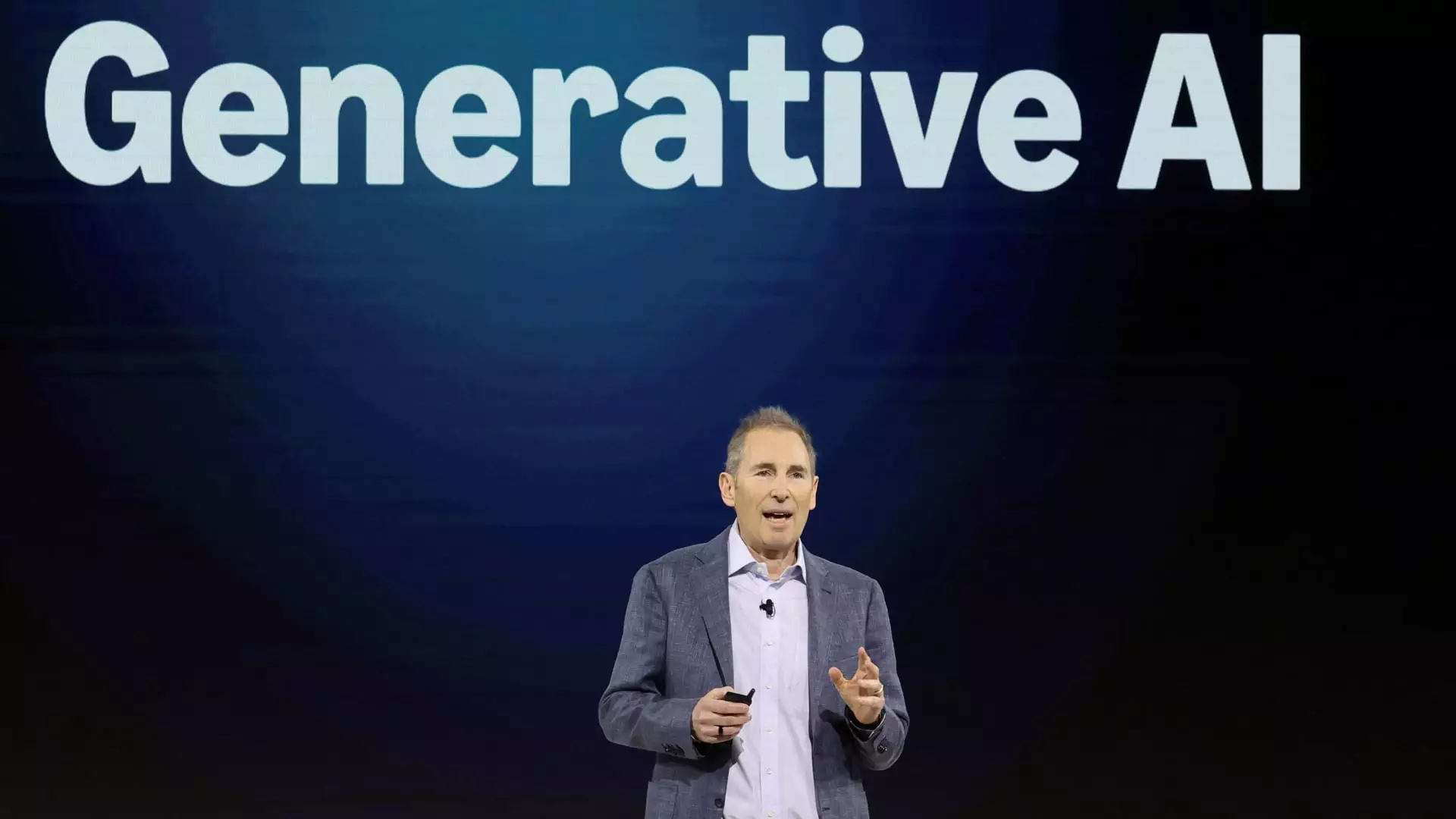Amazon’s recent foray into generative artificial intelligence paints a vivid picture of where the retail titan is heading. The introduction of tools like Interests AI and Health AI suggests a broader strategy to penetrate both the consumer and healthcare markets. However, beneath this shiny veneer lies a deeper issue—one that raises questions about consumer autonomy and the nature of personalized assistance. By encouraging users to describe their interests in conversational language, Amazon appears to be tapping into a more intimate user experience. Yet, one must wonder: does this enhanced personalization compromise the ability to think critically or waste valuable time?
Consider the implications of such technologies on individual decision-making. When consumers start to rely excessively on AI to navigate product choices, they inadvertently risk surrendering their ability to evaluate options independently. This is especially concerning in a platform like Amazon, where consumer purchasing power and data about personal preferences are automatically funneled into a corporate system. We might find ourselves becoming passive recipients of tailored recommendations, thus losing the essence of browsing for products based on spontaneity and curiosity.
Health AI and Ethical Concerns
The launch of Health AI is another significant development that stirs unease. While the intent of this chatbot is to provide valuable health information and suggest products, the nature of “clinically verified” responses should provoke serious discussions around its ethical implications. Although branded as a guidance tool, it does not offer personalized medical advice. This distinction may seem trivial to some, but it raises essential questions about responsibility. When is it appropriate for a corporation, with enormous influence and data capabilities, to dispense health-related advice, even with disclaimers?
The relationship between Amazon and its recently acquired healthcare provider, One Medical, becomes particularly murky under this lens. There’s a chance that Health AI’s role could blur the lines between product promotion and medical reliability. When health-related recommendations are intermingled with retail suggestions, special attention is necessary to ensure that consumer health takes precedence over corporate profits. It’s a concerning path that could set a dangerous precedent for how we interact with digital health resources.
Data Utilization and Consumer Privacy
Amazon’s shift toward generative AI seems motivated by a desire to collect invaluable consumer data under the guise of personalized assistance. While it’s undeniable that AI has the potential to improve user experience significantly, one cannot overlook the less noble aspects of this technology. The more users engage with Interest AI and Health AI, the more data Amazon collects—potentially impacting individual privacy in a world already riddled with data concerns.
In a landscape where consumers are increasingly aware of their rights regarding data privacy, this aggressive strategy poses a critical challenge. Are consumers fully aware of the extent to which their interactions with such tools contribute to an ever-expanding dataset that Amazon uses for marketing and analytics? As a society, we must push for transparency and assert our rights as digital citizens.
Challenges in Competing with Rivals
Another dimension of this ongoing AI evolution is Amazon’s effort to outpace competitors like OpenAI’s ChatGPT. The caveat here is that while pushing for innovation, the corporation may well lose sight of consumer preference. The marketplace thrives on diversity, and forcing consumers to adopt Amazon’s solutions for shopping and healthcare may generate resistance rather than allegiance. Will consumers genuinely enjoy being funneled into using these specific services, or will alternatives become more appealing when they recognize the limitations imposed by corporate ecosystems?
Moreover, if Amazon’s generative AI applications continue exclusively enhancing the retail experience without addressing the broader ethical and social ramifications, the very innovations meant to improve lives could turn counterproductive. The AI race needs to be approached holistically, with an emphasis on the quality of the user experience rather than sheer technological advancement.
The Future of AI Integration
As Amazon prepares to launch the next iteration of Alexa, dubbed Alexa+, the intertwining of generative AI with voice commands presents another layer of complexity. The prospect of a digital assistant capable of performing tasks autonomously might sound like a marvel of technology, but it simultaneously risks dehumanizing our interactions. As we invite AI further into the private sphere, we must fiercely debate what we are willing to sacrifice on the altar of convenience.
While the quest for innovation holds immense promise, it raises disturbing questions about consumer autonomy, ethical medical advice, data privacy, and the essence of genuine interaction. Amazon’s venture into generative AI could very well transform e-commerce, but we should engage critically with these advancements, ensuring they serve society’s greater good rather than merely corporate interests.


Leave a Reply